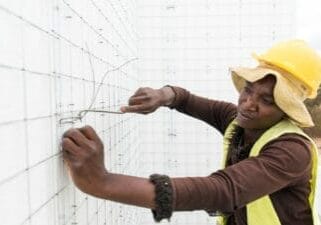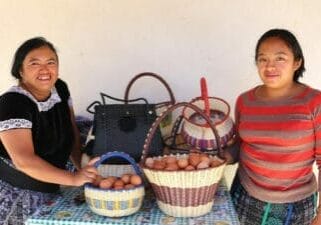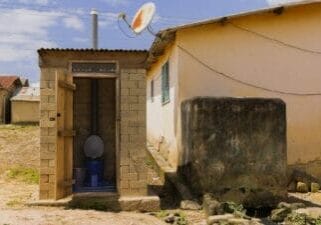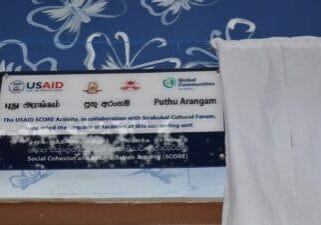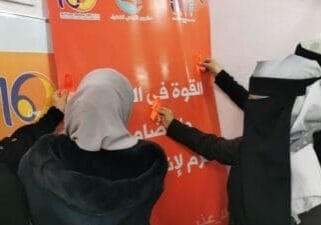News > Blog
Equitable Partnerships to Support Women’s Economic Empowerment & Combat Gender-Based Violence
Published 06/30/2022 by Global Communities
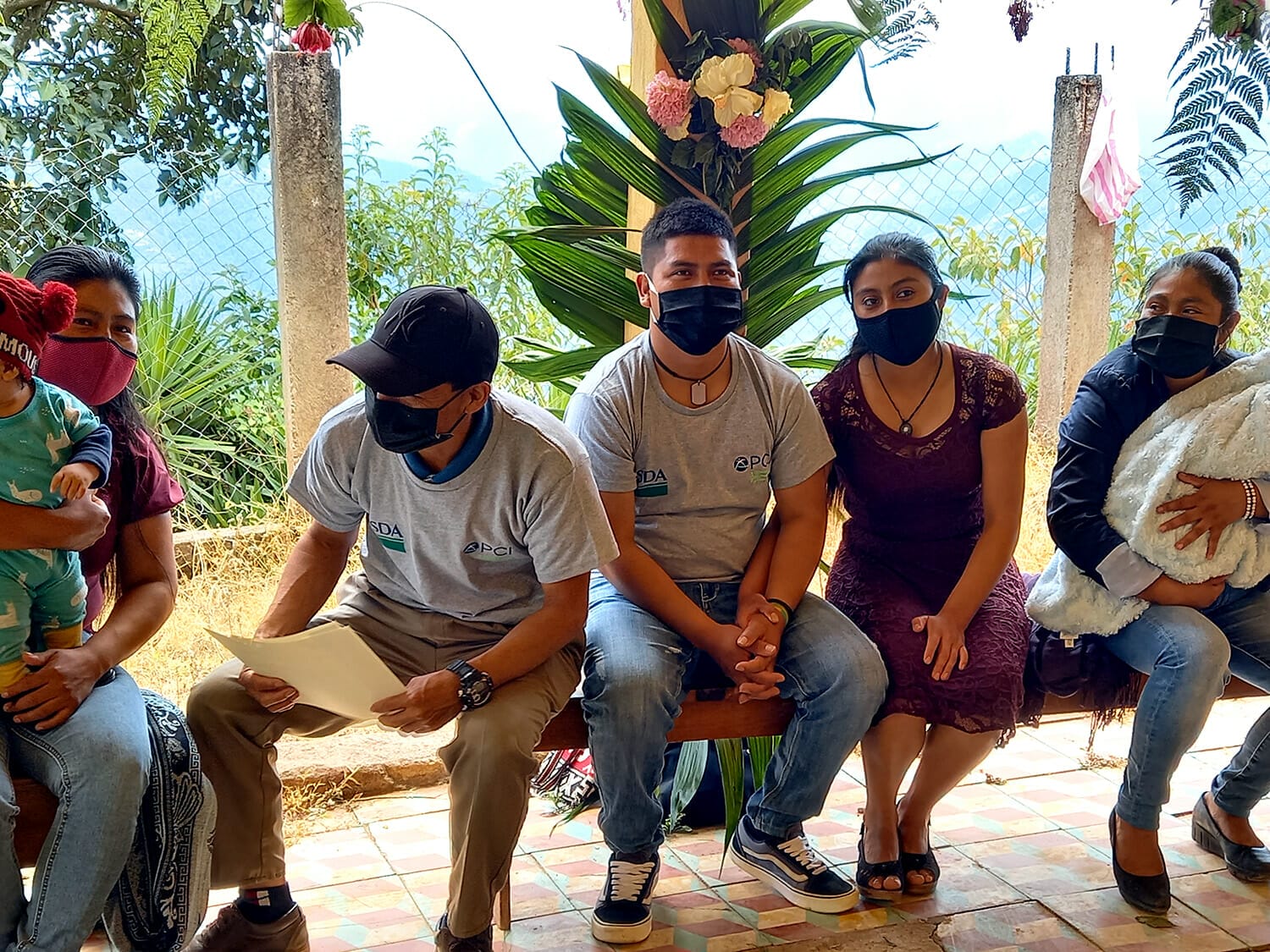
By Mabel Bejarano Cobo
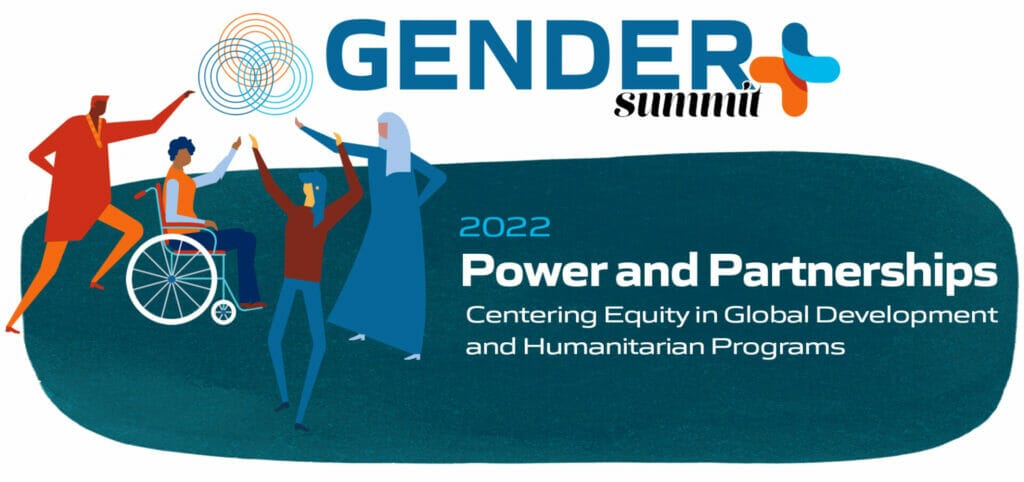
Earlier this month, I had the opportunity to be part of a panel at the Gender Plus Summit which was organized by FHI360 and co-sponsored by Global Communities. I joined Elena Ratoi from the Center for International Private Enterprise, Doina Postica from the American Bar Association Rule of Law Initiative in Moldova and Tsolmontuya Altankhundaga from the Asia Foundation in Mongolia. The panel was moderated by Kristin Wilcox, Chief of Party for USAID/CLEAR at Global Communities.
In my presentation, I explored important intersections between women’s economic empowerment and violence against women. I also explained how Global Communities uses the power of strategic partnerships to advance gender equality in an integrated and holistic manner.
Promoting women’s economic and social empowerment has been a focus for Global Communities for many years. Our flagship savings group program — Women Empowered (WE) — not only increases financial inclusion, but also offers life and business skills training, social cohesion and peer support to enhance women’s agency and well-being. It is rewarding to see women in a savings group meet their goals at the end of a savings cycle and to witness how they gain confidence and make their own decisions as their businesses grow and become more sustainable. As practitioners, we know that promoting economic empowerment is complex and might bring risks to women in vulnerable situations. Programs that support women’s empowerment often challenge social norms, and this can increase the risk of gender-based violence (GBV). At the same time, GBV is not only an egregious violation of human rights but also a barrier to women’s economic advancement.
As we think through the various forms of how our organization can address GBV, we find partnerships to be a great way to support and complement our work in this area. Partnerships are particularly relevant when you have programs that are not specifically built as violence prevention or response interventions, but which should integrate GBV work to address the multifaceted needs and risks faced by our participants.
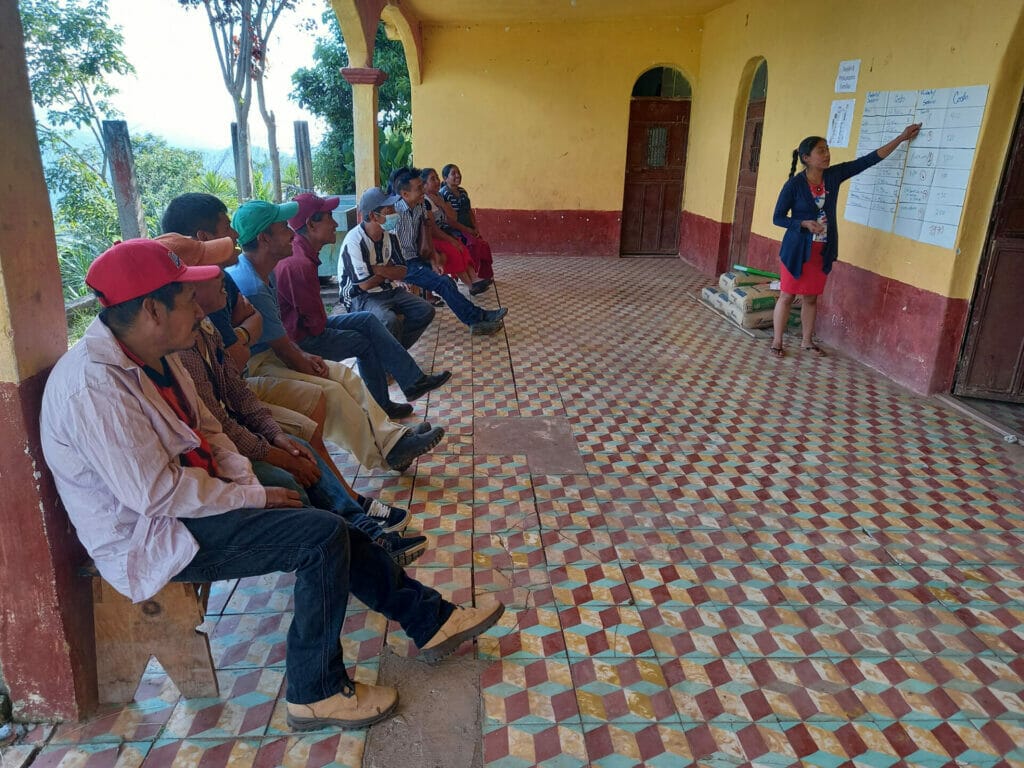
In Guatemala, we had the opportunity to pilot a gender-transformative program called Journeys of Transformation to engage men as allies in women’s economic empowerment and address GBV. The pilot was implemented as part of EDUCAMOS, Global Communities’ USDA-funded McGovern-Dole International Food for Education and Child Nutrition program, and in collaboration with renowned organization Equimundo (previously known as Promundo). The program implementation took place in 2021, and it became a very important complement to our WE program. Under Journeys of Transformation, we worked with men whose partners were participating in our WE groups. The curriculum consisted of 13 group learning and discussion sessions led by local trained male and female facilitators and promoted critical reflection, discussion and the sharing of experiences with same sex peers as well as together as couples.
After completing the program, we conducted a thorough evaluation which showed positive shifts in gender-related outcomes and the reduction of restrictive gender norms and attitudes that limit women’s economic empowerment. This entailed changes in attitudes around women’s equal participation in income-generating activities, including women’s work outside the home and men’s participation in unpaid work in the home (caretaking and housework). Men and women participants also reported a significant reduction in the acceptance of the use of violence by men against their female partners in different situations. In addition, improved partner communication was highlighted as the main benefit from participating in the program. For instance, at endline, significantly more men and women reported being able to talk about their concerns with their partner and being more comfortable talking about whether to have sexual intercourse than at baseline. At endline, significantly more men reported participating in household and childcare work, while both women and men reported increased awareness of the importance of joint decision-making.
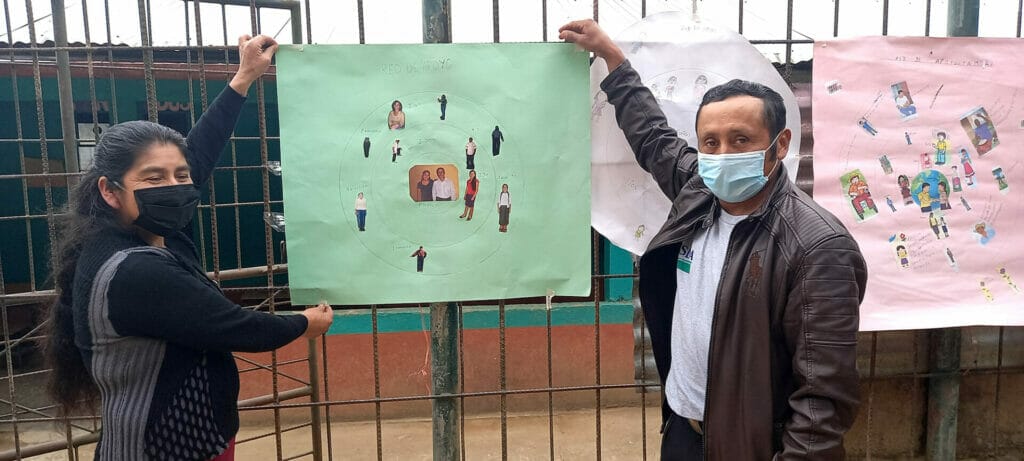
These remarkable results would not have been possible without the support and contributions of our various partners, including Equimundo and local institutions. Establishing linkages with local authorities from the moment we entered the communities was key to the success of the program. In Guatemala, most of the local community leaders are men. Gaining their support was extremely important for Journeys of Transformation, because they have a very strong influence on community members and became role models for many of our male participants.
We also collaborated with the Municipal Directorates of Women (DMMs for the acronym in Spanish). DMMs in Guatemala are recognized and respected by communities and have a presence in most of the areas within each municipality. Through collaborating with the DMMs, we were able to raise public awareness about the legal framework around GBV in the country and about the routes for reporting cases of violence and resources available for survivors. DMMs also became important allies for women and savings groups as we exited communities after implementation was completed.
In addition, we collaborated with the local Center for Integral Maternal and Child Care to provide training and support to participants on family planning. Finally, we identified services available for violence survivors, including psychological, legal, health, shelter and economic support. This was done through a mapping exercise at the beginning of the project. Unfortunately, these services are very limited, particularly in rural areas. This challenges us to be creative and forge partnerships with other non-governmental organizations and institutions outside of public social services.
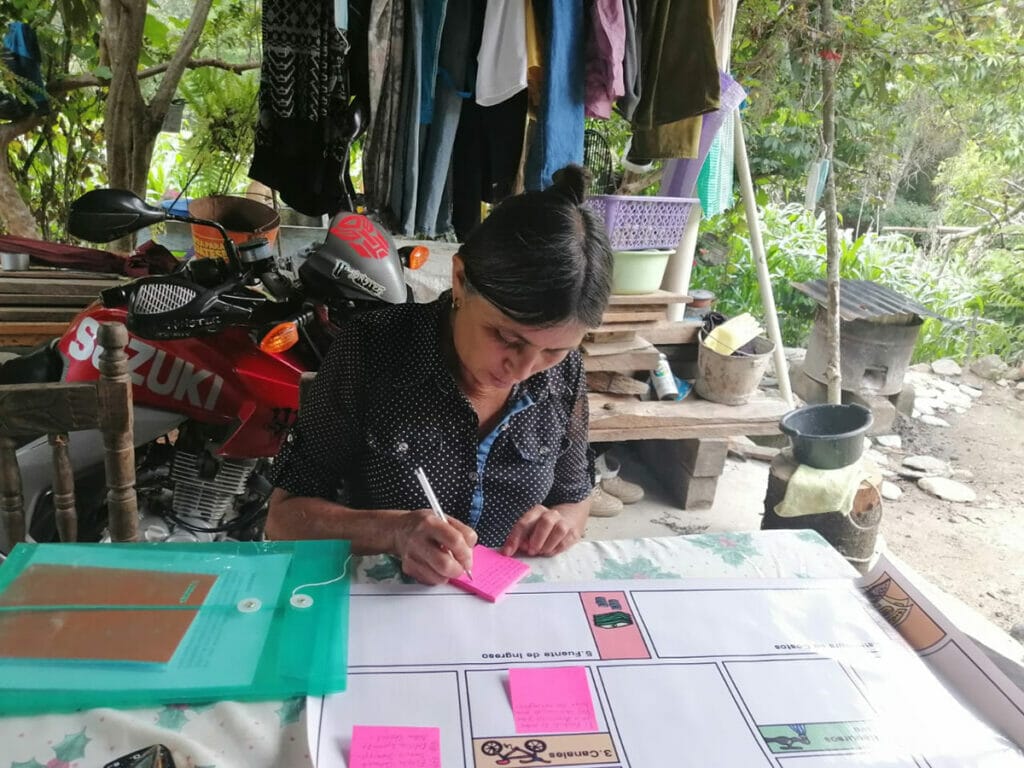
How effective partnerships are in addressing GBV and harmful gender norms depends, to a great extent, on each context: services available in our communities, resources allocated to service providers and the quality of their services. In Guatemala, rural areas tend to be more resource poor than urban areas and critical government agencies (such as the DMMs) are extremely under-resourced, understaffed and overwhelmed.
Based on this experience, as organizations promoting women’s economic empowerment plan to build partnerships to be better equipped to respond to and prevent GBV, there are a few elements to take into consideration:
- Incorporate a “Do No Harm” approach to the work and prepare a safeguarding and GBV risk mitigation plan. This is particularly important given that promoting women’s economic empowerment can result in unintended consequences, such as GBV.
- Understand and share the current legal and institutional framework around GBV in the country of intervention, including laws, rights, services and reporting protocols.
- Prepare the organization’s team. Provide training and continuous support to staff around such topics as cycles of violence, types of violence, zero tolerance approach, survivor-centered approach and alternative masculinities.
- Identify partners around three key moments of project implementation: community entry, project implementation and post-project. Consider how different local or regional partners can support various aspects of the work and how the organization will contribute to the partners’ objectives.
- Understand the needs of women and men in the areas of intervention, and prioritize services based on these needs. Consider access to information, psychosocial services, health care and legal aid, among others.
- Engage men in women’s economic empowerment interventions. Promote positive masculinities, couples’ communication, joint decision-making and the creation of a family vision where violence is not acceptable under any circumstances.
As we continue our journey in promoting violence prevention and supporting survivors of violence, we will further our work with partnerships to strengthen our interventions and address the systemic issue of GBV. The task seems titanic, and the road ahead long, yet we can find inspiration in all of those lives we have touched and what we learned along with others who have walked with us. As Nelson Mandela said, “It always seems impossible until it is done.“
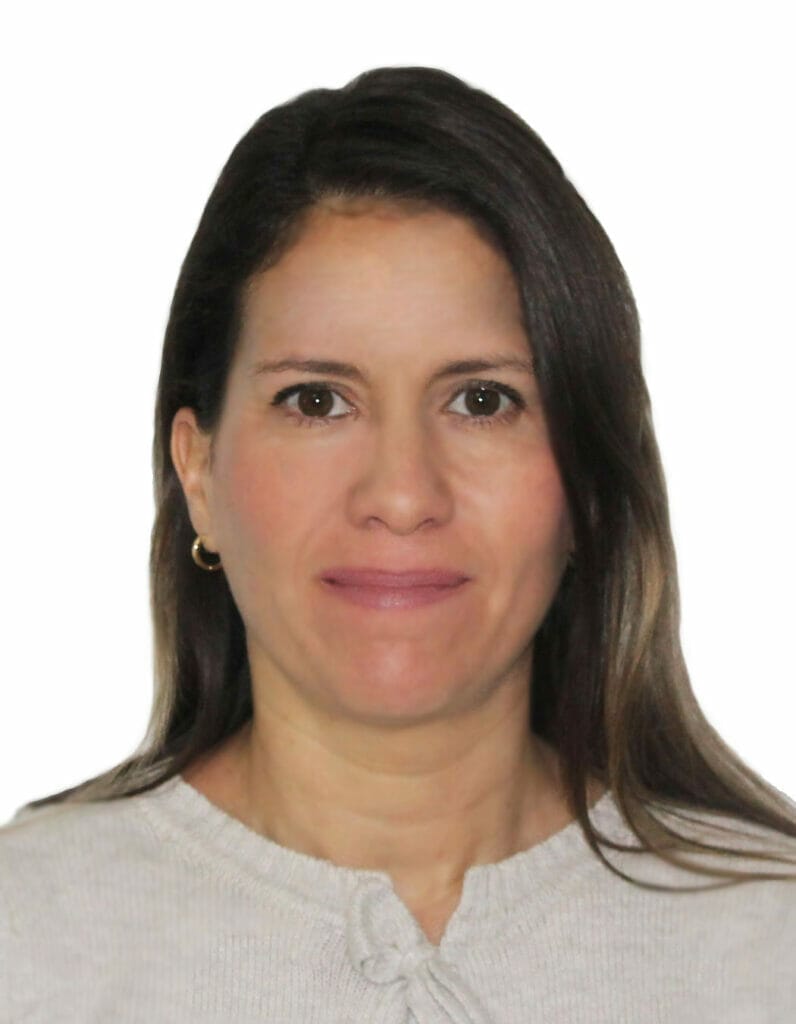
Mabel Bejarano Cobo is the Savings Groups and Women’s Empowerment Technical Advisor at Global Communities based in Guatemala. Mabel leads the Women Empowered Initiative’s technical assistance and program quality activities, providing strategic direction and support for monitoring, evaluation and documentation for the Americas region and some countries in the Africa region. Based in Guatemala, Mabel provides remote and in-country assistance to implementing teams and partners, contributing to the development and implementation of specific strategies, savings and loans programs and women’s empowerment methodologies. Mabel has a Bachelor of Arts in psychology from Universidad Javeriana (Colombia), a Master of Science in nonprofit management from The New School (New York) and a Master of Business Administration from Universidad EAFIT (Colombia). Mabel is passionate about promoting women’s independence, social justice and animal well-being.

